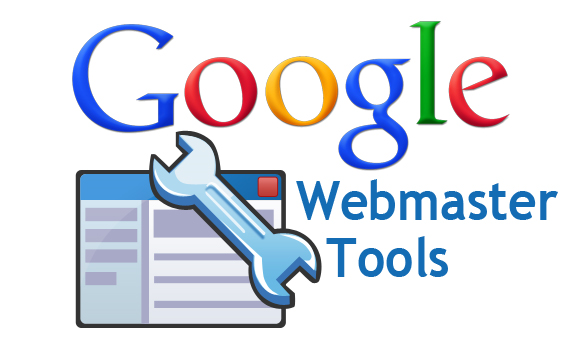Measuring KPIs In Google Adwords
by Daniel Baker on 20-Dec-2013 09:16:00
The Numbers You MUST Know To Make Money On PPC
As the title suggests, measuring KPIs (key performance indicators) needs to be a priority throughout the running of your PPC campaigns. These numbers can instantly inform you about what you’re doing right and what needs to be improved. Acting on this can make or break your campaign.
But what if you’re new to Google Adwords and aren’t certain which key performance indicators to measure, or how to smoothly manage your budget? Read on to find out exactly which numbers to focus on – and watch the money come in.
Before we go into detail, you should know exactly what a KPI is. KPIs in Adwords are:
The quantifiable measures in the campaign metrics that are used to gauge performance, in terms of money or goals.
Your most important KPIs depend on your specific Adwords strategies.
Any user of Google Adwords will know that there is an overwhelming amount of KPI metrics to keep an eye on in your PPC campaign. In particular, small to medium sized business owners don’t always have the time to make sense of it all and separate out the numbers that will really add value.
Many Adwords experts have debated over which Adwords KPIs you should be measuring the closest, by asking themselves:
1. Which PPC metrics give the clearest picture of campaign performance?
2. Which PPC metrics could you do without/are overrated?
3. Which measurements enhance Google Adwords budgeting the most?
These are the most popular key performance indicator choices that deliver the most impressive returns:
CTR
CTR (click through rate) is one of the most crucial KPI metrics in PPC. It is measured as a percentage, where any figure over 2% is good, and indicates the quality of your ads. It is measured using the sum: total clicks ÷ ad impressions.
If CTR for a particular ad is low, you know which ad content, keywords and landing pages to investigate. By improving match relevance and the clarity of your offer, you will drive more valuable traffic and increase CTR. Your budget spend on clicks will also be much better.
To find out how your website can attract more valuable leads, check out 10 Steps To An Effective Website That Attracts Enquiries & Sales.
Conversion Rate
This particular PPC metric is not only a KPI of conversions and sales, but a KPI of your keyword, ad and landing page quality. A conversion can be a sent enquiry, sign up for a white paper or a straightforward sale, but obviously these wouldn’t exist without a consistent, credible sales funnel.
By setting up conversion tracking goals in Google Analytics and merging them with Adwords, you can see the conversion rate percentage of any call to action. It will immediately tell you whether your keyword choices, ad wording and page layout are working or not, saving time and money.
CPA
This KPI means cost per acquisition (also known as cost per conversion). It won’t be needed if you aren’t tracking conversions. However if you are using conversion codes in Google Analytics, acting on this is a must.
Cost per acquisition lets you know – with one clear price – the average overall spend to get one conversion. If your cost is high, that means you aren’t making enough profit and wasting your PPC budget. Therefore, if you act on this figure you could increase profit, spend less of your budget and have a more efficient sales funnel with just a few campaign tweaks.
CPC
The CPC (cost per click) for each keyword in your campaign is the most basic of KPI metrics; it is so important if you want to make money on Google Adwords. When choosing which keywords to use you must consider how much you will pay for each, as well as how relevant and closely matched it is to your ad group. If not, you will narrow your ROI in the long run. Click cost is usually defined by the amount of bidder competition, how much the highest bidders are paying and how many clicks the keyword is expected to get.
When looking at the CPC, think about whether your budget will comfortably accommodate first page clicks on this keyword. Can you afford to bid competitively? Are there other ways you can improve keyword/ad/landing page quality to decrease this CPC? Weighing up the pros and cons and being realistic will ensure you make money without draining your Adwords budget.
Dig deeper into the cost factors of PPC by reading What Does Google Adwords (Pay Per Click) Cost? The Main Factors.
Quality Score
Finally, Quality Score (QS) is another essential number to keep tabs on in your Adwords PPC account. Quality Score is the score (0 being low, 10 being high) assigned to all keywords in your campaign. It tells you, plain and simple, how good the “quality” of your keyword is in relation to its ads and landing page. This particular PPC metric may not tell you about cost implications, but it definitely indicates how much work is needed on specific areas of your campaign to increase profit.
Google Adwords will reward you kindly for optimising Quality Scores. The higher the number, the lower you will have to pay per click for the same (or better) ad position. This means you will save money on CPC and increase profit, getting more ad exposure at the same time!
So now you know which KPI metrics should be getting your full attention every time you log into your Google Adwords account. Measure these numbers regularly and you are guaranteed to operate a profitable PPC campaign.
Article by Laura Wootton
Additional Resources
http://www.wordstream.com/blog/ws/2011/09/20/ppc-metrics-ultimate-guide
- Inbound Marketing (SEO, PPC, Social Media, Video) (831)
- Strategy (368)
- Sales & CRM (197)
- Marketing Automation & Email Marketing (190)
- Business Growth (168)
- Website Design (162)
- Hubspot (141)
- Lead Generation (117)
- Google Adwords (100)
- Content Marketing (94)
- Conversion (53)
- Case Studies (49)
- News (47)
- Ecommerce (39)
- Webinars (34)
- SEO (26)
- AI (20)
- Events (19)
- LinkedIn Advertising (17)
- Video (17)
- Video Selling (15)
- Software training (13)
- Niche business marketing (11)
- The Digital Prosperity Podcast (10)
- HubSpot Case Studies (7)
- Facebook Advertising (6)
- Web Design Case Studies (1)
- February 2026 (2)
- January 2026 (12)
- December 2025 (15)
- November 2025 (6)
- October 2025 (17)
- September 2025 (16)
- August 2025 (14)
- July 2025 (14)
- June 2025 (5)
- May 2025 (19)
- April 2025 (15)
- March 2025 (13)
- February 2025 (13)
- January 2025 (8)
- December 2024 (2)
- November 2024 (4)
- October 2024 (21)
- September 2024 (4)
- August 2024 (8)
- July 2024 (14)
- June 2024 (16)
- May 2024 (25)
- April 2024 (15)
- March 2024 (18)
- February 2024 (5)
- January 2024 (10)
- December 2023 (6)
- November 2023 (10)
- October 2023 (13)
- September 2023 (12)
- August 2023 (14)
- July 2023 (13)
- June 2023 (14)
- May 2023 (15)
- April 2023 (13)
- March 2023 (14)
- February 2023 (13)
- January 2023 (15)
- December 2022 (13)
- November 2022 (6)
- October 2022 (8)
- September 2022 (22)
- August 2022 (15)
- July 2022 (13)
- June 2022 (16)
- May 2022 (14)
- April 2022 (16)
- March 2022 (17)
- February 2022 (11)
- January 2022 (8)
- December 2021 (6)
- November 2021 (7)
- October 2021 (11)
- September 2021 (10)
- August 2021 (7)
- July 2021 (7)
- June 2021 (4)
- May 2021 (4)
- April 2021 (1)
- March 2021 (3)
- February 2021 (5)
- January 2021 (4)
- December 2020 (7)
- November 2020 (6)
- October 2020 (5)
- September 2020 (9)
- August 2020 (18)
- July 2020 (17)
- June 2020 (17)
- May 2020 (10)
- April 2020 (21)
- March 2020 (24)
- February 2020 (21)
- January 2020 (12)
- December 2019 (23)
- November 2019 (12)
- October 2019 (14)
- September 2019 (16)
- August 2019 (15)
- July 2019 (13)
- June 2019 (6)
- May 2019 (8)
- April 2019 (4)
- March 2019 (2)
- February 2019 (2)
- January 2019 (2)
- December 2018 (3)
- November 2018 (24)
- September 2018 (11)
- August 2018 (9)
- June 2018 (3)
- May 2018 (6)
- April 2018 (14)
- March 2018 (12)
- February 2018 (16)
- January 2018 (15)
- December 2017 (15)
- November 2017 (18)
- October 2017 (23)
- September 2017 (19)
- August 2017 (28)
- July 2017 (27)
- June 2017 (25)
- May 2017 (18)
- April 2017 (17)
- March 2017 (16)
- February 2017 (17)
- January 2017 (14)
- December 2016 (21)
- November 2016 (27)
- October 2016 (25)
- September 2016 (16)
- August 2016 (20)
- July 2016 (19)
- June 2016 (14)
- May 2016 (20)
- April 2016 (24)
- March 2016 (22)
- February 2016 (28)
- January 2016 (27)
- December 2015 (28)
- November 2015 (19)
- October 2015 (9)
- September 2015 (12)
- August 2015 (5)
- July 2015 (1)
- June 2015 (10)
- May 2015 (3)
- April 2015 (11)
- March 2015 (14)
- February 2015 (15)
- January 2015 (12)
- December 2014 (2)
- November 2014 (23)
- October 2014 (2)
- September 2014 (2)
- August 2014 (2)
- July 2014 (2)
- June 2014 (7)
- May 2014 (14)
- April 2014 (14)
- March 2014 (7)
- February 2014 (2)
- January 2014 (7)
- December 2013 (9)
- November 2013 (14)
- October 2013 (17)
- September 2013 (3)
- August 2013 (6)
- July 2013 (8)
- June 2013 (4)
- May 2013 (3)
- April 2013 (6)
- March 2013 (6)
- February 2013 (7)
- January 2013 (5)
- December 2012 (3)
- November 2012 (2)
- September 2012 (1)
Subscribe by email
You May Also Like
These Related Blogs

How To Add An Additional User To Your Google Webmaster Tools Account
If you have or indeed manage a website, you should be using Google Webmaster Tools. Webmaster Tools is one of Google’s many free programs that allows …

No Time To Follow Up Leads? – Automation Will Be Your Saviour!
Running a business isn't a job for those who want a quiet life, as you'll know. There can be times when it feels like there just aren't enough hours i …

Are Organic Keyword Rankings Still Important In 2017?
Google is constantly making changes to its search engine on a daily basis. Some of these affect rankings, some affect the layout of the SERPs and more …



